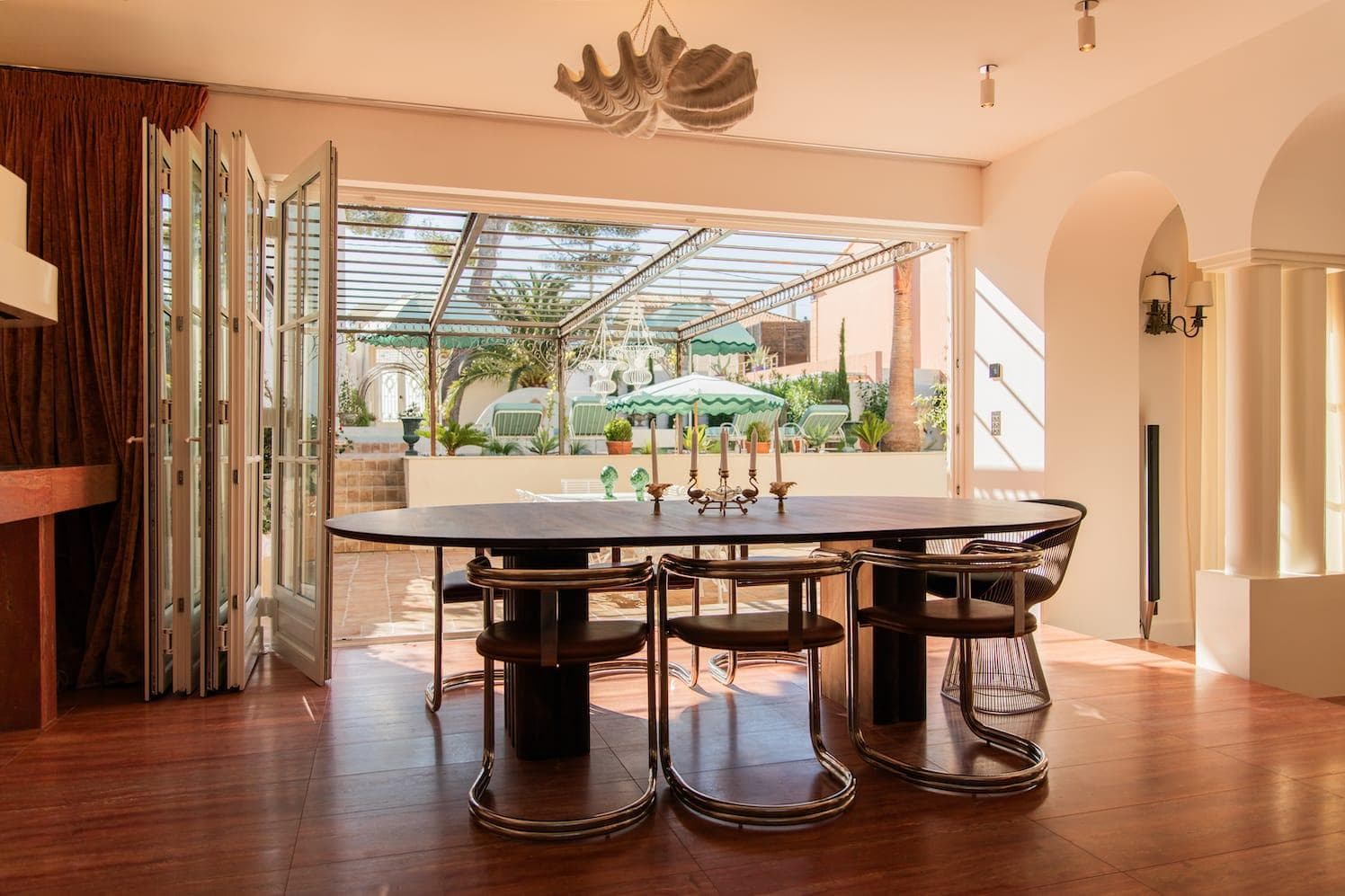Margaux Fritz, the architect blending Cali cool with French flair
A lover of mid-century modern style* — think clean lines and floor-to-ceiling windows — Margaux Fritz brings a bright, contemporary touch to the French architectural scene. Whether it’s a chalet tucked away in Haute-Savoie or a sun-drenched villa in Marseille, the Marseille-born architect juggles projects with effortless style. Time for a closer look.
Margaux Fritz, the architect blending Cali cool with French flair
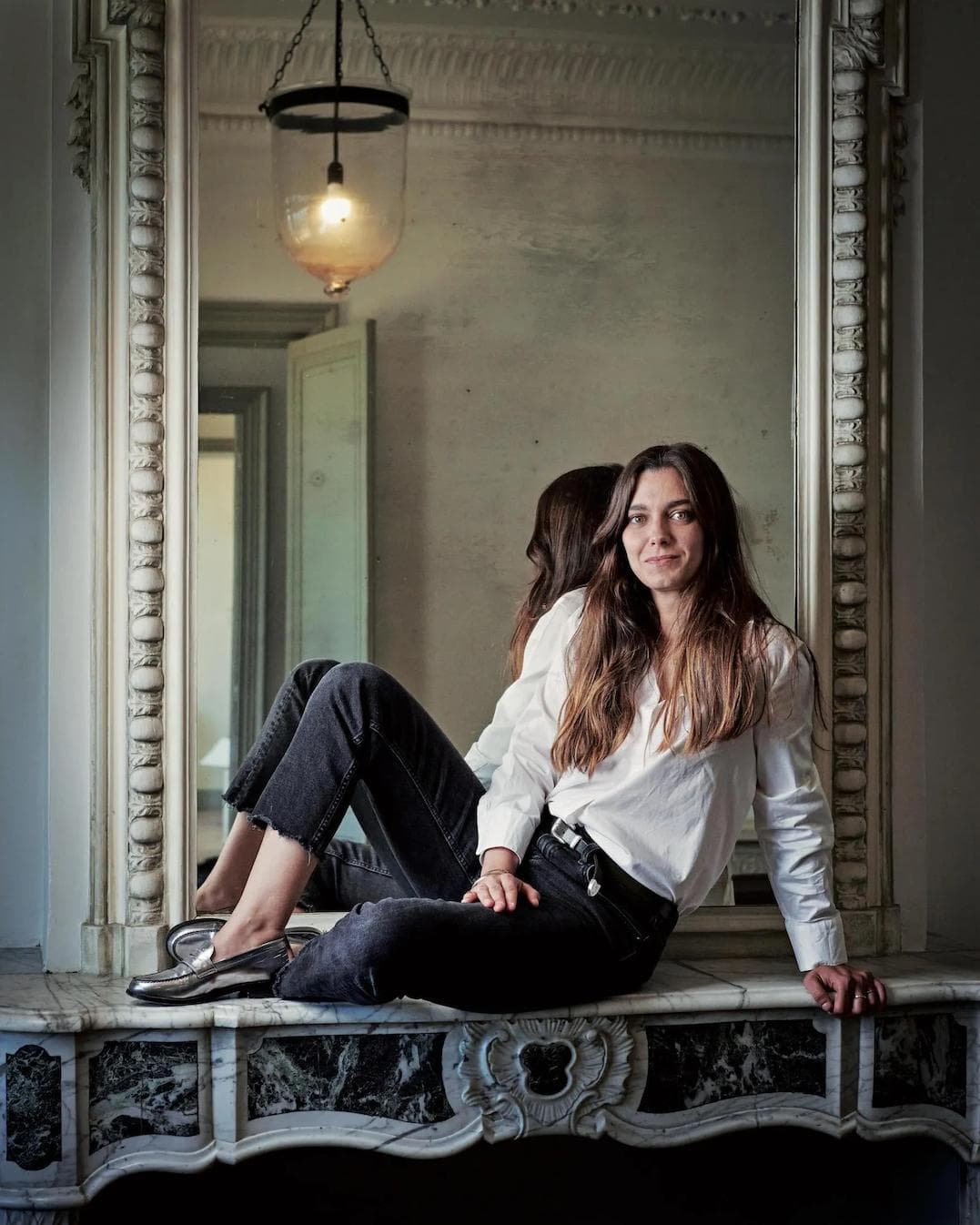
Margaux Fritz.
Margaux, can you start by telling us a bit about your background?
Margaux: I started with a foundation course in graphic arts in Marseille after high school, then did another in Paris before joining L’École Bleue, where I studied for five years. I graduated in 2013 and worked independently for a while before joining Maison Sarah Lavoine. After that, I moved to New York, then spent a few months living in India. When I came back to France, I returned to my hometown, Marseille. Since 2017, I’ve been working here as a freelance architect, mostly on private residences and boutique projects. Looking ahead? I’d love to design hotels!
How did your interest in architecture begin?
Margaux: It all started with a childhood friend who chose that path. She told me about it, and something just clicked. I quickly realised how much I enjoyed it. Then, while studying at L’École Bleue, I had a teacher who was obsessed with Californian architecture from the ’50s and ’60s — and he totally passed that passion on to me. That encounter led to an internship in Los Angeles, and I’ve been immersed in the architecture and interiors of that era ever since. I’m lucky to explore that style here in Marseille — it’s a great playground for it. Not like Paris, where you’re mostly working with apartments.
Indeed, that quintessential Slim Aarons-style Californian villa vibe is very much present at Villa Sunset—a contemporary residence perched above the Corniche Kennedy. What can you tell us about it?
Margaux: The villa — an iconic building — was originally designed by a renowned architect credited with bringing Californian style to Marseille. The project was later taken over by Studio KO Architecture. My client and I reworked both the interior and exterior volumes, but without making any major changes.
For the interior design, I drew inspiration from designers I truly admire: Richard Neutra, the Austrian-American architect who built most of his career in Southern California and is a leading figure of modernism; and Pierre Koenig, perhaps less well-known, but celebrated for his glass-and-steel Californian homes. Their work is all about expansive glass walls, seamless transitions between indoors and out, materials that flow naturally from inside to outside, and openings that frame the landscape while encouraging movement through the space.
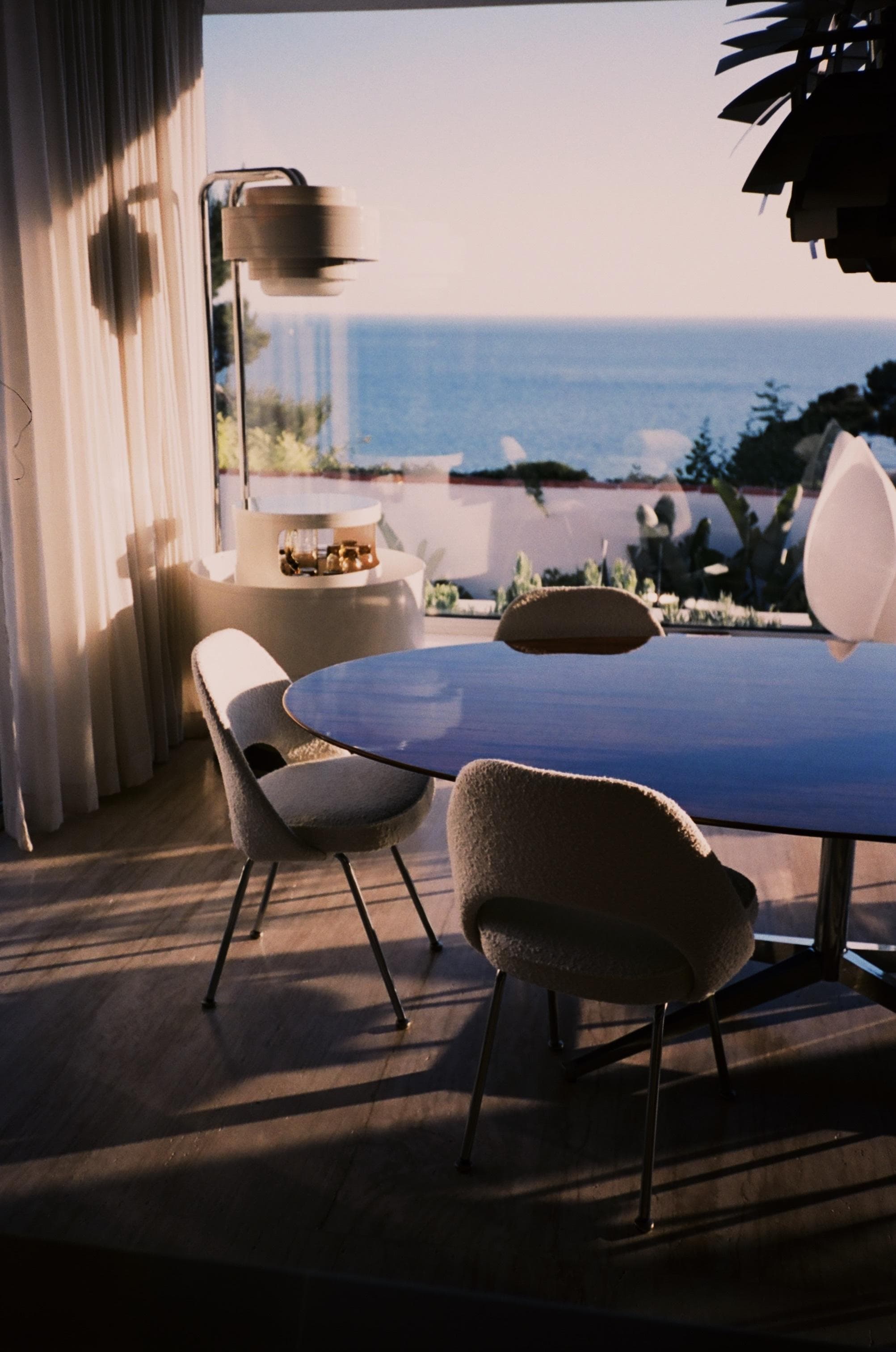
At Villa Sunset, dine while admiring the Mediterranean. © Audrey Colombani
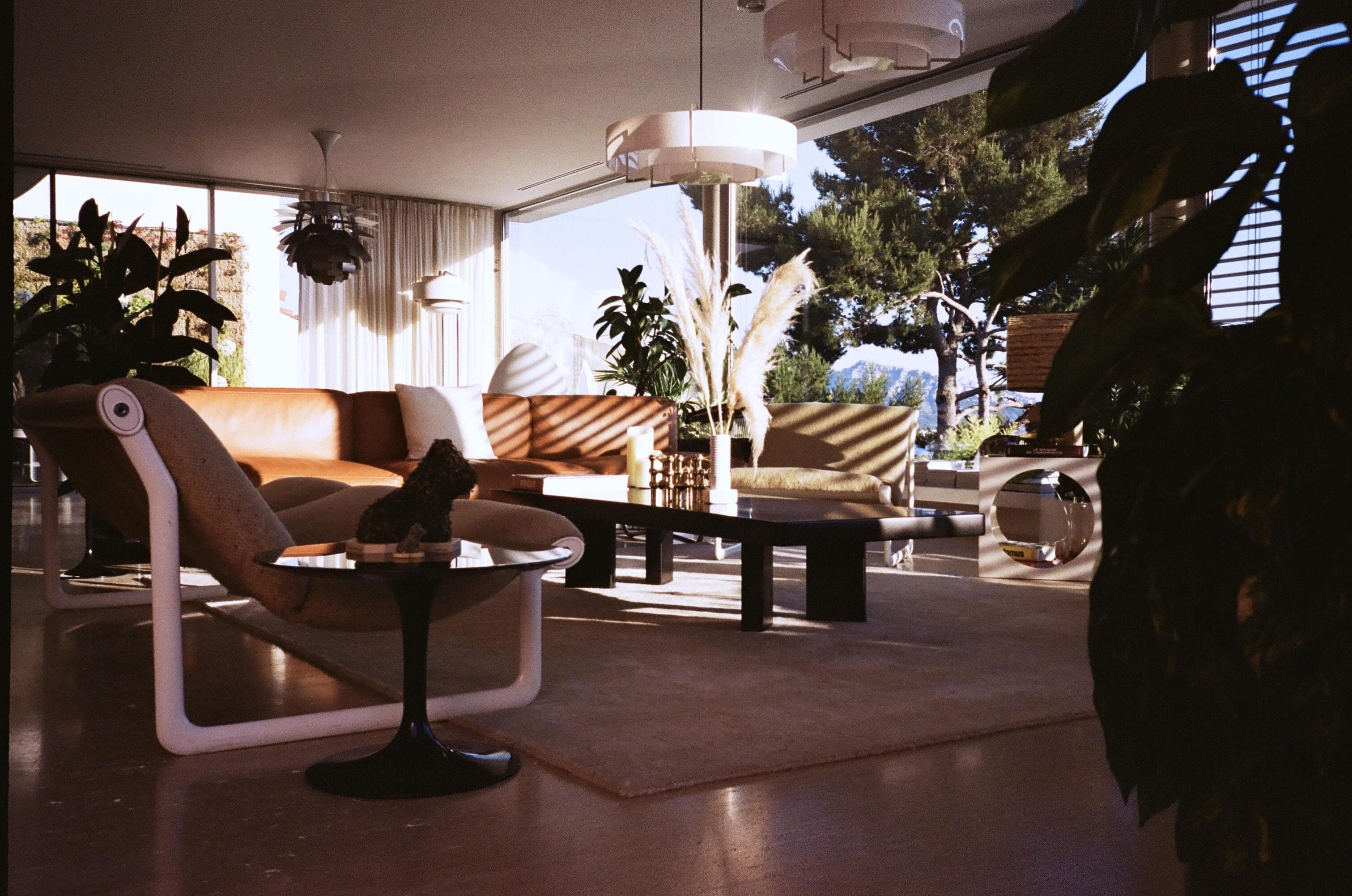
Villa Sunset's living room. © Audrey Colombani
You’ve worked with Audrey Colombani, co-founder of Maisons Dominos — a collection of vacation homes for rent across France. What’s it like collaborating with her?
Margaux: The first project we worked on together was Villa Sunset, and we clicked right away! We share a similar aesthetic — Audrey’s also into that vintage spirit of the ’60s and even the ’70s. We’ve been working hand in hand on every project since.
For the chalet in Saint-Gervais-les-Bains, Domino Trois, we imagined a kind of retro English boudoir vibe: refined, with antique pieces, soft lighting, and dark wood… The goal was to make it feel like the chalet had always been there — even though it’s actually quite new. We wanted to give it the warmth of an old family home, while layering in beautiful contemporary pieces to strike that subtle balance between comfort, modernity, and vintage charm.
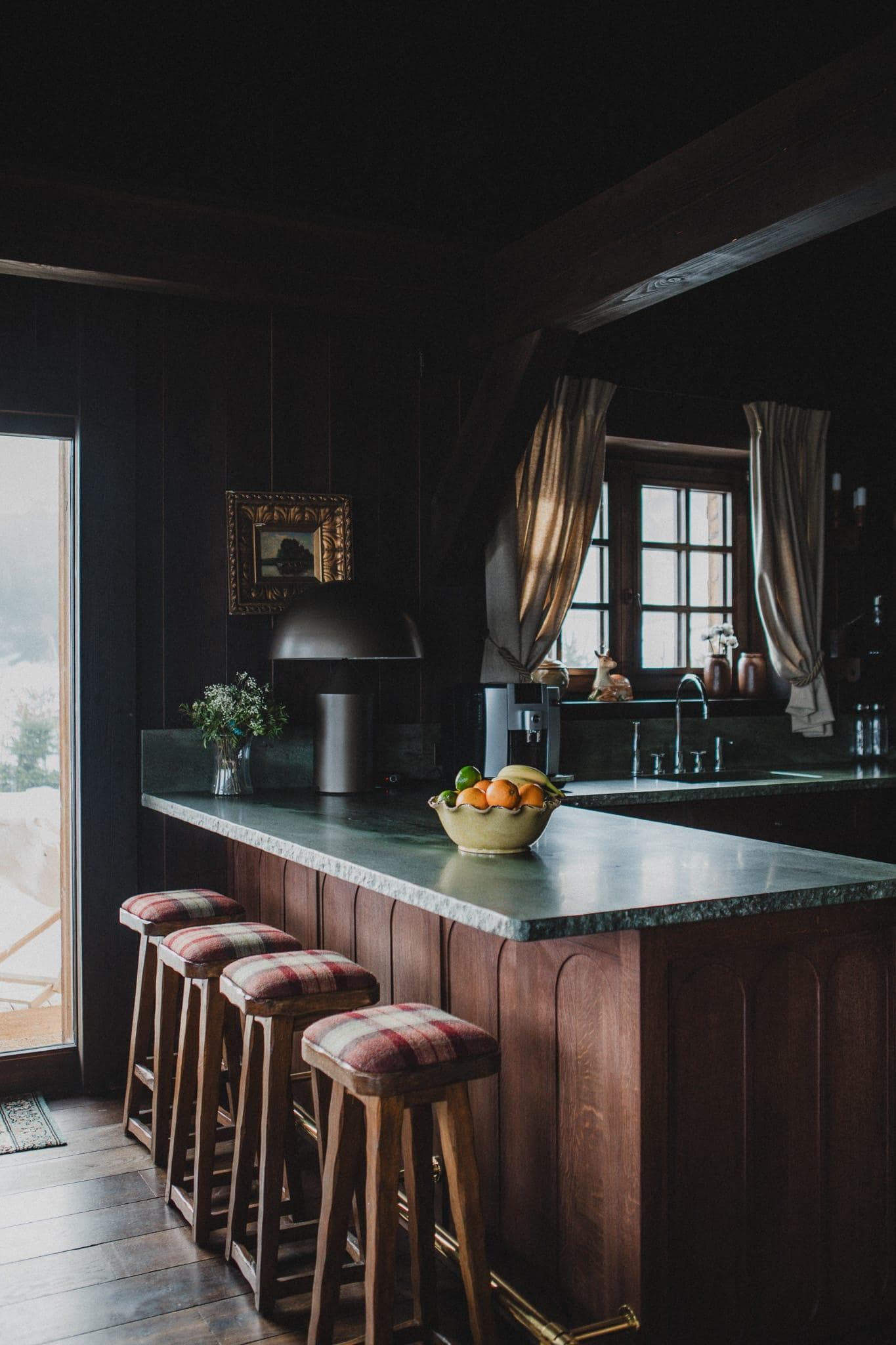
The retro kitchen of the Domino Quatre chalet © Agathe Boudin
Domino Trois is a rental property—do you approach designing these kinds of homes differently?
Margaux: Yes, I approach vacation homes the same way I would a boutique hotel. It’s all about comfort, a sense of luxury… That might mean, for example, making sure every bedroom has its own en-suite bathroom.
Do you allow yourself more creative freedom—using bold colors or statement pieces—given that it’s a rental property where guests only stay for short periods?
Margaux: Not necessarily, because these homes are meant to welcome a wide range of guests, each with their own tastes and sensibilities. So the design has to appeal to as many people as possible — striking a balance between timeless style and just the right amount of the unexpected.
You mentioned your working relationship with Audrey Colombani. How do you generally collaborate with your clients?
Margaux: It really depends on the client. Some give me complete creative freedom, while others prefer a more collaborative process. I’m lucky to be in a place now where I can choose the projects I take on, so I only say yes to the ones that truly inspire me — with clients who share a similar aesthetic sensibility.
Is there a project you're particularly proud of?
Margaux: Yes — my own home! It’s called Villa Bambi, in Marseille. For once, I was my own client — which wasn’t always easy — but at least I had a clear vision of where I wanted to go. The process was very instinctive, though it took time, since it was a full build on a tricky, hard-to-access plot.
The result is a geometric structure with a limewashed façade and large openings. Like with my other projects, I wanted to blur the line between indoors and out, using expansive glass windows to create that seamless connection. It lets the house soak up the sun all day long.
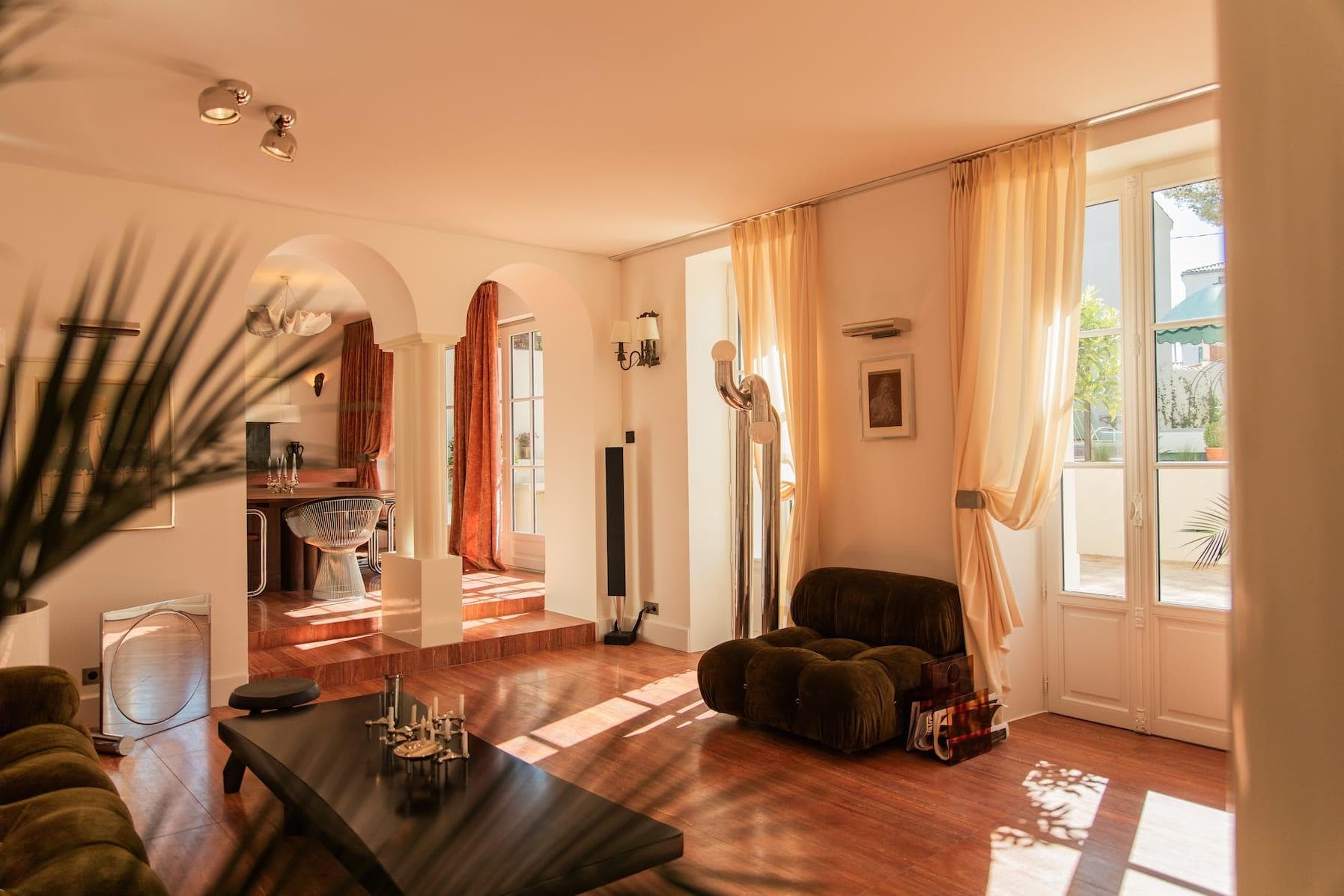
The interiors of Domino Trois in Marseille. © Lena Charignon
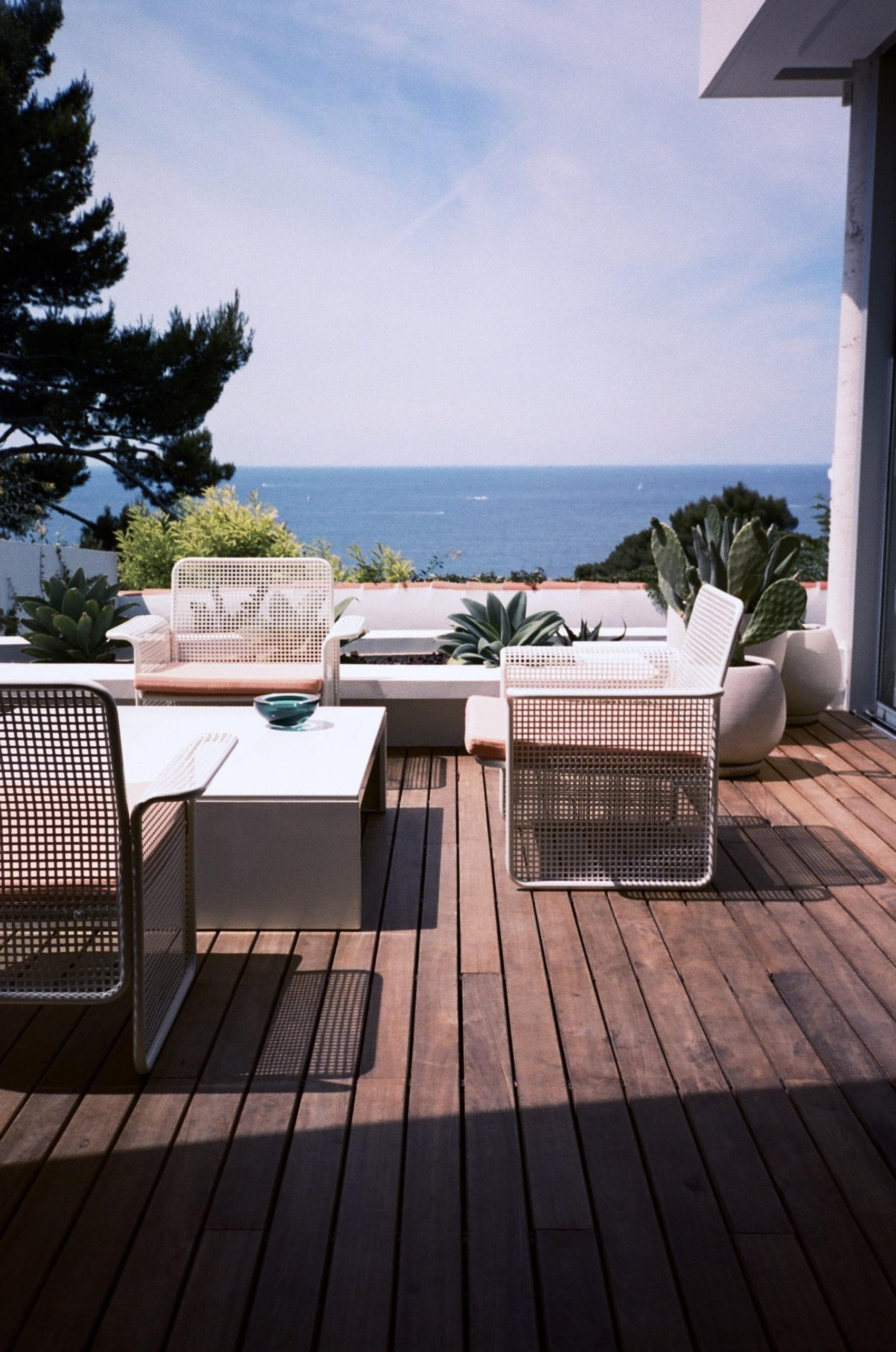
Under the sun at Villa Sunset © Audrey Colombani
Any current or upcoming projects you'd like to share?
Margaux: I’m currently working with KO Architecture on a house in Marseille — it has a Californian feel, but we’re softening it with more rounded forms. It’s a new direction for me, and really exciting to explore different volumes and spatial dynamics. And of course, those signature expansive glass windows make an appearance again…
I’m also working on another project — a boutique in Marseille’s antiques district, focused on custom vintage-inspired furniture. I’ll be collaborating with designers and artists to create one-of-a-kind pieces, from furniture to decorative objects.
*Mid-century modern is an architectural and design movement that emerged in the United States between 1945 and 1970, drawing inspiration from European modernism and the Bauhaus.
It is characterized by clean lines, minimalist forms, open floor plans, and a strong connection to the outdoors, often using modern materials such as glass, steel, and concrete. The architecture emphasizes natural light, spacious interiors, and harmony with the surrounding environment, reflecting a functional and optimistic vision of postwar living.



